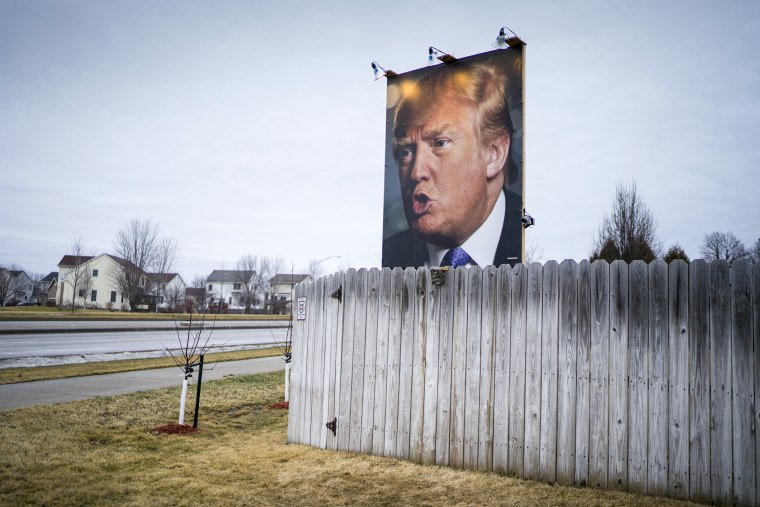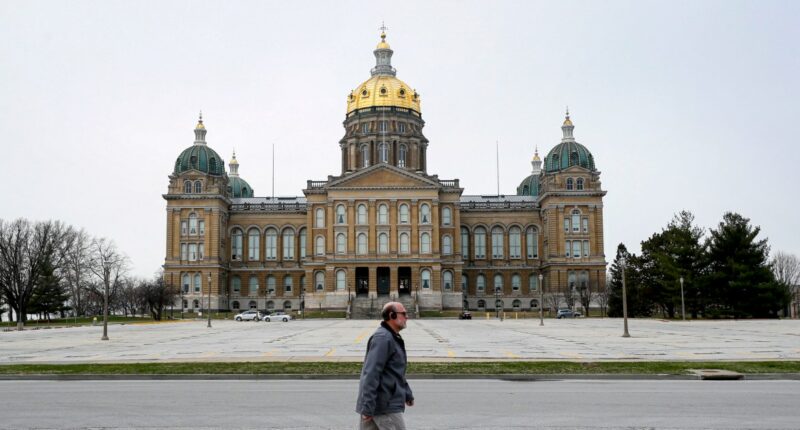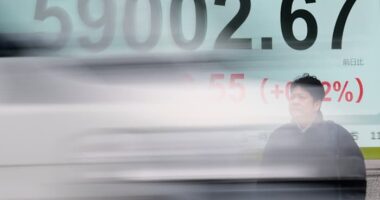Share this @internewscast.com
Iowa Democrats have faced tough times recently. However, a series of impressive results in special legislative elections this year — significantly surpassing the performance of the 2024 Democratic presidential nominee Kamala Harris in each — has sparked hope that the party might secure some significant Republican-held offices in the upcoming midterm elections.
Excitement was already brewing among Democrats about their chances in the forthcoming governor’s race, the U.S. Senate, and a couple of competitive House contests.
In the meantime, Democratic contenders in four off-cycle, special legislative contests demonstrated double-digit improvements compared to Harris’ 2024 vote share, the latest political benchmarks in those areas. As of Tuesday night, this streak includes a victory that transformed a Republican seat and disrupted the GOP supermajority in the Iowa Senate. Party members are keen to link the stretch to public sentiment regarding President Donald Trump and their general prospects in what was once a swing state but has leaned decidedly red during the Trump era.
“Iowa voters have seen Trump’s tariff tax blunders negatively impact farmers, and the GOP’s Medicaid cuts threaten their local hospitals — all while Iowa Republicans remain oblivious,” Heather Williams, president of the Democratic Legislative Campaign Committee, shared with NBC News. “Working families across the Hawkeye state recognize they deserve more, which is why they’re gravitating towards state Democrats ready to oppose Trump’s disastrous policies, even in red districts he captured by large margins last November.”
Republicans argue that these predictions are easily dismissible, pointing to the very low turnout in these quiet off-year, down-ballot special elections.
They also highlighted how much effort and investment Democrats made in these races — and how strongly Republican the state has become over the past two decades, evidenced during regular campaigns when full electorates turn out to vote.
“I think it’s a mistake to read too much into these special elections, because the turnout is so low — and when the Democrats are particularly motivated,” said David Kochel, a Republican strategist in Iowa. “I would caution anyone who tries to read too much into any of these special elections. They’re so poorly representative of what the overall vote in Iowa might look like in 2026.
“Iowa is still a Republican state. It’s going to be a Republican state,” he added.

In Tuesday’s special election victory, Democrat Catelin Drey won a Sioux City-area district with 55% of the vote to Republican Christopher Prosch’s 45%, according to unofficial results with all precincts reporting. That’s a 22-point shift from the margin the presidential election last year, when Harris lost the district by 12 percentage points, according to data crunched by The Downballot, a left-leaning political site.
Democrats recorded double-digit improvements in three other special legislative elections in Iowa earlier this year. In April, Democrats held a seat in a special legislative election in a reliably blue Cedar Rapids district but expanded on Harris’ margin of victory by 26 percentage points, according to The Downballot’s analysis.
In March, Democrats lost a special legislative race in a safe GOP district in southeastern Iowa — but by only 3 percentage points in a district that Trump carried by 27 percentage points last year, that analysis showed.
And in a January special Senate election, Democrats flipped an eastern Iowa district by 4 points, after Trump won it by 21 percentage points, according to The Downballot.
The special elections precede a busy midterm year in 2026. Next year, there is an open race for governor, with Republican Gov. Kim Reynolds not seeking a third full term. The nonpartisan Cook Political Report with Amy Walter rates the contest “Lean Republican.”
Multiple candidates are running in the primaries on both sides. Iowa Auditor of State Rob Sand is seen as the Democratic front-runner. On the Republican side, U.S. Rep. Randy Feenstra is seen as the front-runner, having outraised all of his opponents in the first half of the year. Feenstra hasn’t formally launched his campaign, but he has formed an exploratory committee and said he would formally announce in September.
Iowans haven’t elected a Democratic governor since 2006.
There are also two House races that are expected to be competitive.
In the 1st Congressional District, which encompasses a southeastern chunk of the state, Republican Rep. Mariannette Miller-Meeks faces a competitive road to re-election. Miller-Meeks won her 2024 race over Democrat Christina Bohannan by just under 800 votes, and Bohannan is among the Democrats running for the seat next year. Cook rates the 2026 race as a “toss-up.”
In the 3rd Congressional District, centered on Des Moines, Republican Rep. Zach Nunn could also face a competitive race. Nunn won his race last year by 3.8 percentage points after having flipped the seat in the 2022 midterms. Several Democrats have already jumped into the race or have signaled they will. Cook rates the 2026 race as “Lean Republican.”
Sen. Joni Ernst, R-Iowa, is up for re-election next year, too, though she hasn’t yet announced whether she is running again. Cook rates her race as “Likely Republican.”
Iowa hasn’t sent a Democrat to the Senate since 2008.
Trump won Iowa last year by more than 13 percentage points and by more than 8 percentage points in 2020.
Despite that recent record, several Democratic candidates were eager to say their gains in the recent slate of special elections were part of a broader trend in the state that they said was feeding their optimism.
“It really confirms what we’ve been seeing and feeling on the ground here for the last couple of months,” Bohannan said. “Iowans are ready for change. They are absolutely fed up with the status quo.”
State Sen. Sarah Trone Garriott, who is running in the 3rd District, said Democrats’ gains are “a really great sign that Iowans are fed up and they’re ready for something better and something different.”
But only a slice of the voters who participate in national elections showed up for the recent races.
For example, just 7,600 voters cast ballots in Drey’s race, according to the unofficial results — only 24% of all eligible voters. That’s compared with the more than 14,000 who voted in the last regular general election for the state Senate seat, in November 2022.
Republicans also pointed to the great lengths — with regard to volunteers and door-knockers — that Democrats went to to help turn out their voters.
“A special election doesn’t necessarily indicate anything for the next election cycle, because voter turnout is so different in a special election,” a national Republican operative familiar with Iowa politics told NBC News. “Democrats spent a ton of money, they flew in volunteers, they rushed the gates on this just to try and make a point.”
Jeff Kaufmann, the Iowa GOP chair, said, “National Democrats were so desperate for a win that they activated 30,000 volunteers and a flood of national money to win a state Senate special election by a few hundred votes.”
Many Democrats also acknowledged that they would have to do more to continue their successful streak into the midterms.
“It’s a snapshot in time. I don’t think we should put all of our stock in it,” said Debbie Cox Bultan, the CEO of NewDEAL, a left-leaning political strategy firm. “It’s encouraging, but absolutely we cannot rest on our laurels and think we’re going to get there only by people voting against Trump. We’ve got to give them something to vote for.”
A Democratic strategist in Iowa attributed the party’s gains in recent local special elections to the fact that “people are not happy with the direction that the state is going” while it’s under GOP control — but added that Democrats’ overperformance in recent state legislative elections are “not necessarily indicative of the national environment.”
But Drey’s win Tuesday “signals the fact that Iowans are looking around” for change, the strategist said. The strategist noted that the recent special election wins were all in places that aren’t traditional Democratic strongholds — and noted the crowds that Sand, the gubernatorial candidate, has been getting.
Sand has notched rare statewide wins for his party in recent years. But claiming the governorship — and making other gains in the state — would need another level of shift in Iowa.











